Character Development
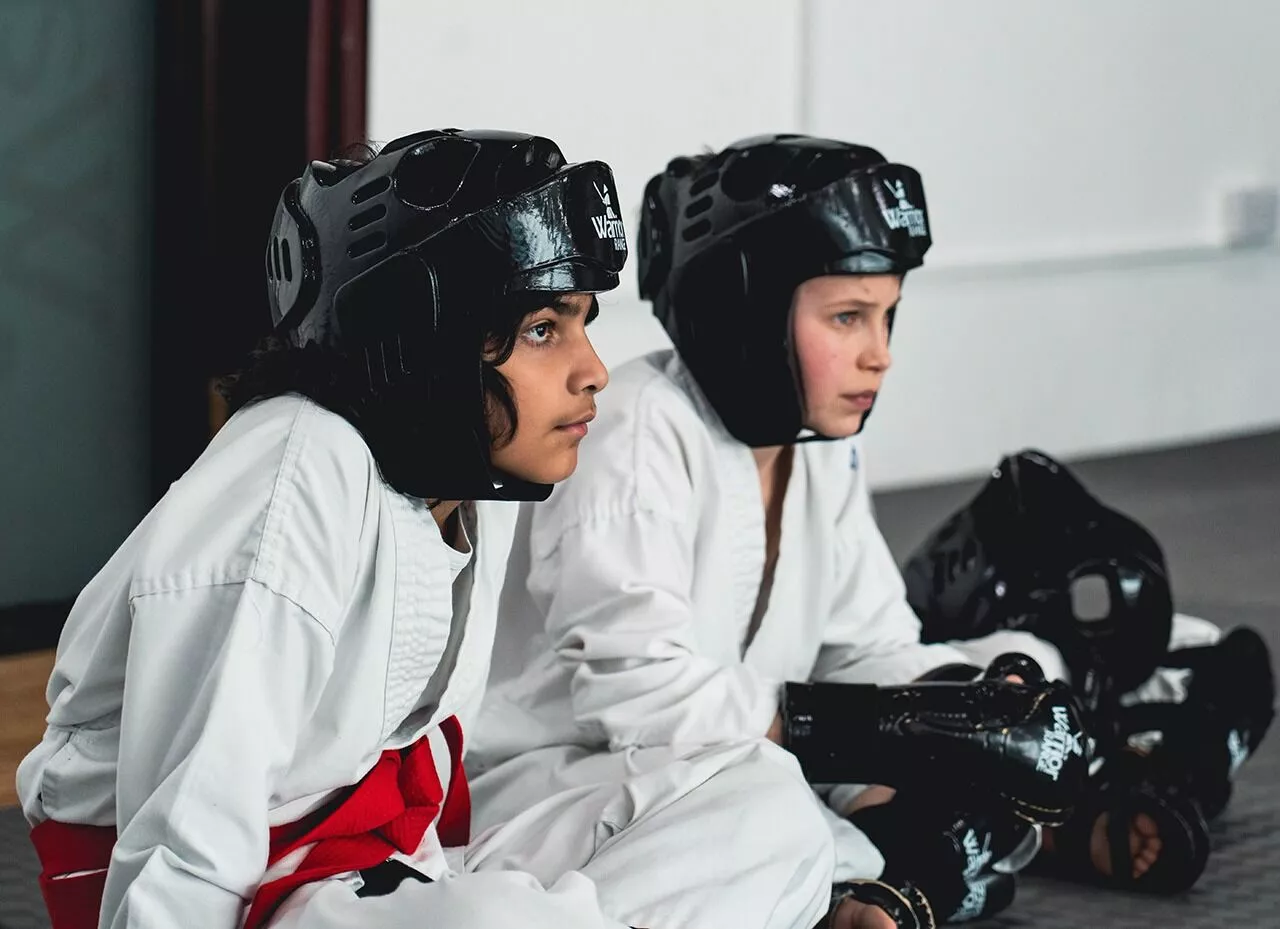
Character Development through Taekwondo: Building Strong Values and Life Skills
Character development in children is the process of nurturing positive values, beliefs, and attitudes that guide their actions and shape their personality. It is a crucial aspect of child-rearing that involves teaching children essential life skills, values, and virtues that can help them lead a fulfilling life. The goal of character development is to equip children with the tools they need to become responsible, compassionate, and respectful members of society.
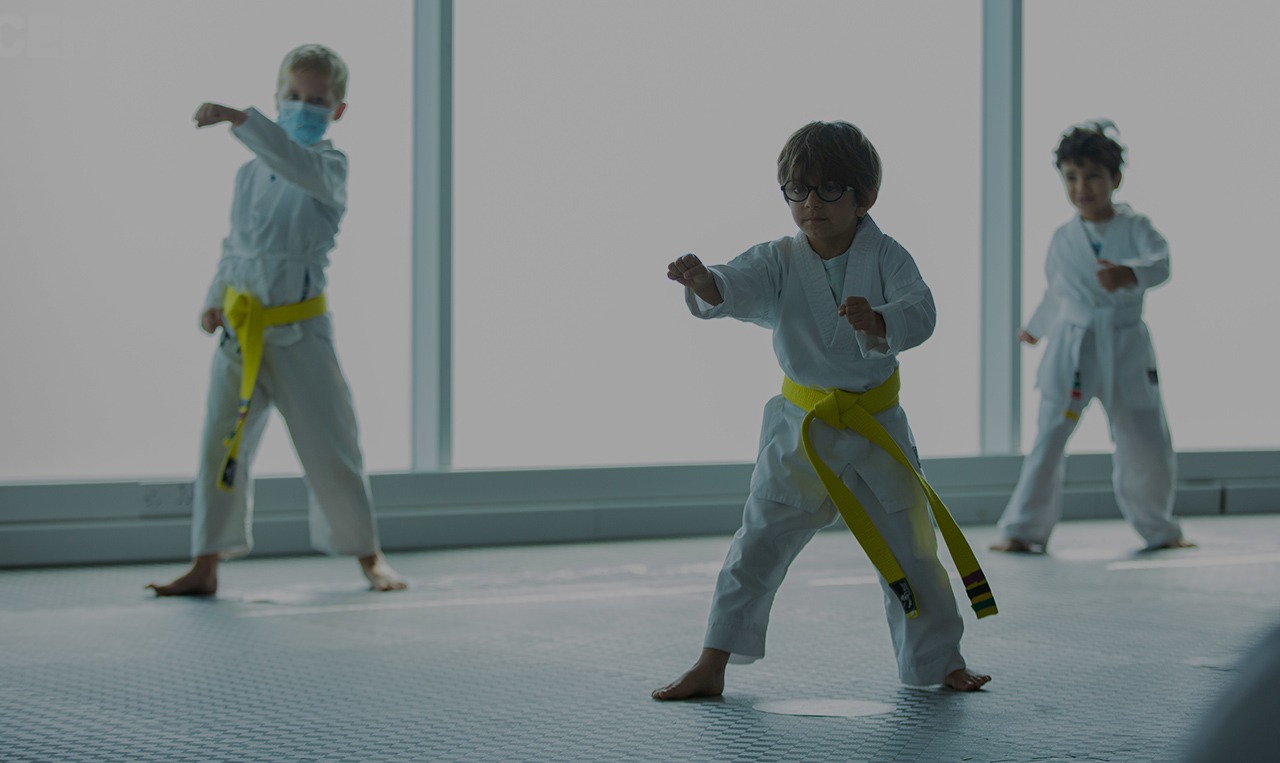
Character Development is a journey
Character development is not a one-time event but an ongoing process that requires continuous reinforcement and guidance from parents, teachers, and other role models. Through a combination of formal education, life experiences, and social interactions, children can learn critical values such as honesty, empathy, kindness, and self-discipline.
Martial Arts & Character Development
Martial arts can be an effective tool for character development in children. The principles and values that underpin martial arts, such as respect, discipline, and perseverance, can help children build character, develop self-esteem, and learn important life skills that can translate into success in other areas of their lives. By practicing martial arts, children can learn to set goals, work hard, overcome challenges, and develop a sense of self-awareness and confidence that can last a lifetime.
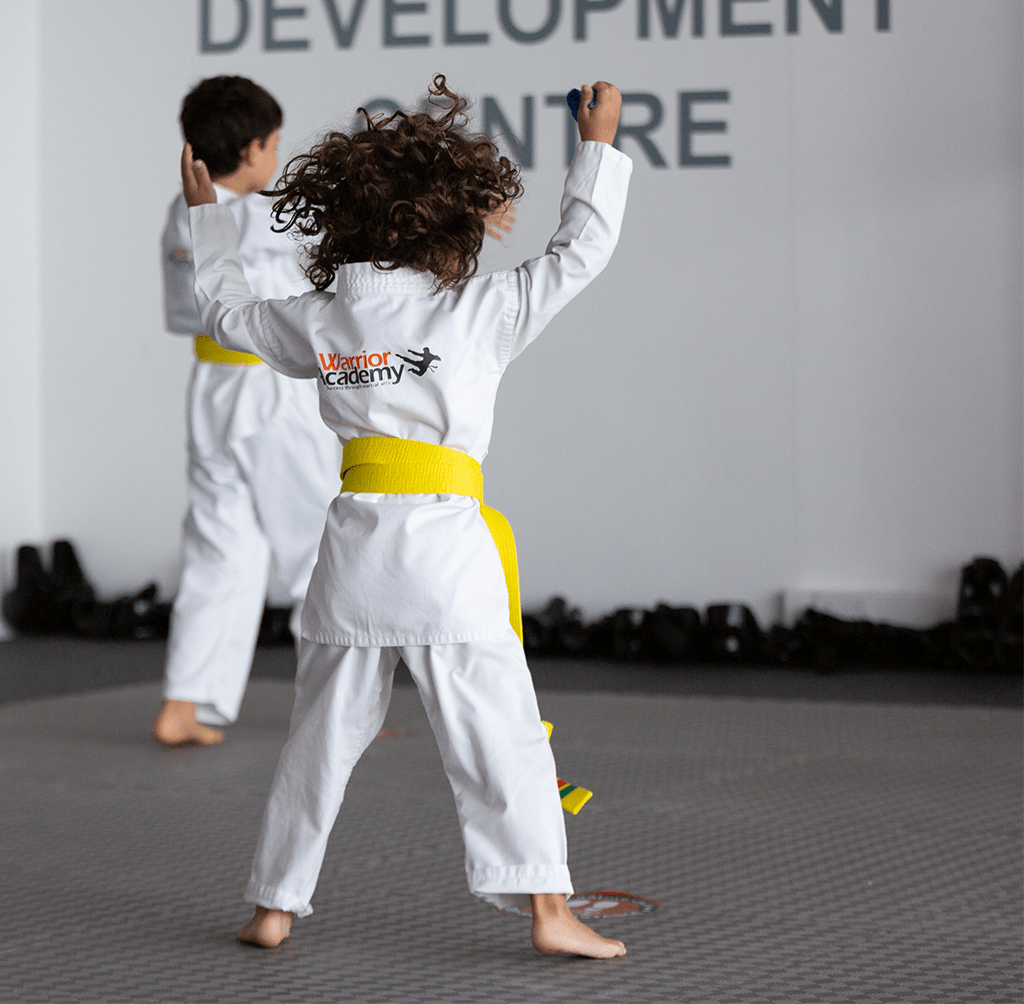
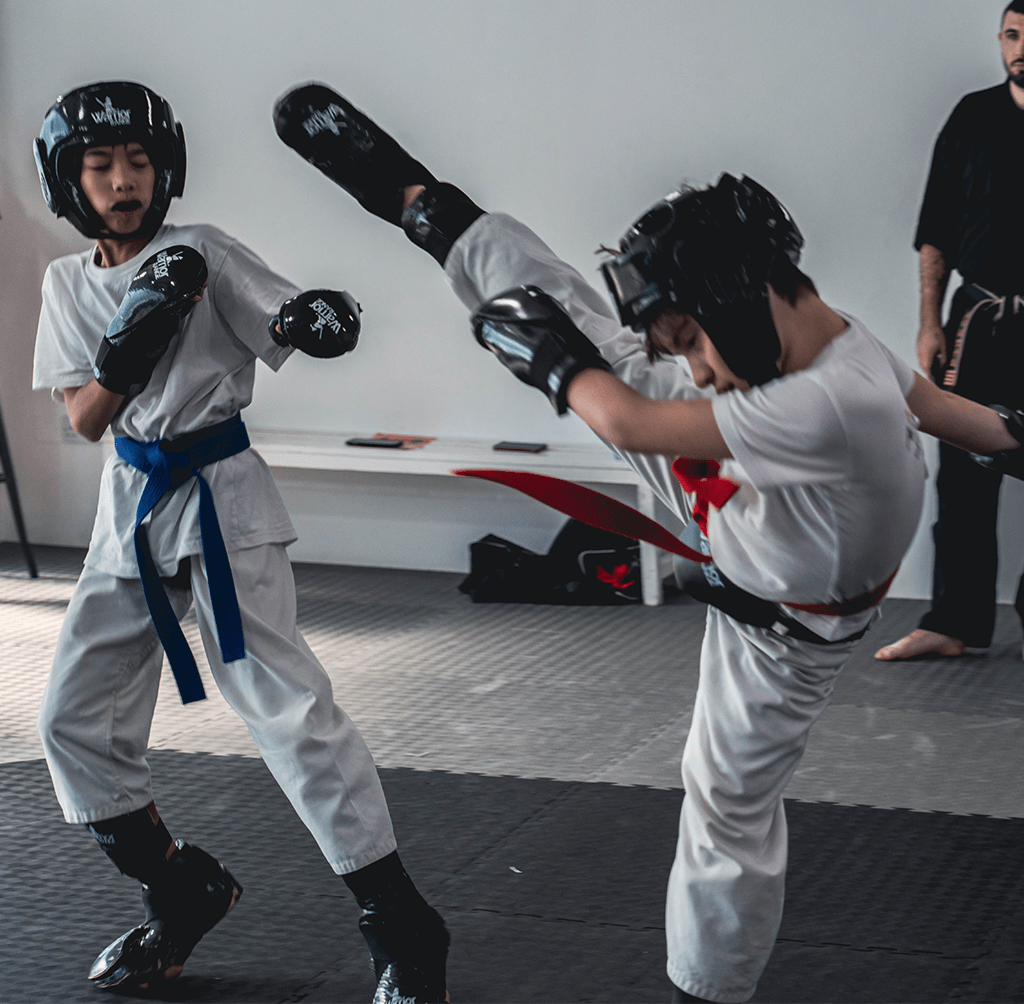
Character Development For Children
Taekwondo and other martial arts can have a profound effect on a child’s character. Here are some of the things that can be positively impacted:
Respect
Respect is one of the key values that is emphasized in martial arts, especially in Taekwondo. It is a fundamental aspect of character development and is considered to be one of the most important lessons that martial arts teaches.
In Taekwondo, respect is taught from the very beginning, starting with bowing to instructors, fellow students, and even to the training area itself. Students are taught to treat everyone with respect, regardless of their rank or level of skill.
One of the ways that Taekwondo helps to improve respect is by teaching students to respect their opponents. In martial arts, opponents are not seen as enemies, but as partners who help you to improve your skills. By showing respect to opponents, students learn to treat them with dignity and courtesy, which helps to foster a positive and supportive training environment.
Respect is also taught through discipline and structure. Martial arts classes are often highly structured, with students expected to follow specific rules and protocols. By adhering to these rules, students learn to respect authority and to behave in a disciplined manner. They also learn to take responsibility for their actions and to be accountable for their behavior, which is an important aspect of respect.
Discipline
Discipline is another important aspect of character development that is highly valued in martial arts, particularly in Taekwondo. Discipline refers to the ability to control one’s behavior and actions, adhere to rules and regulations, and follow a specific code of conduct. In martial arts, discipline is essential as it helps students stay focused and committed to their training, which is crucial for achieving their goals and becoming proficient in their chosen martial art.
Discipline is developed through consistent practice and dedication to the training process. In Taekwondo, students are expected to arrive on time for class, wear the proper uniform, and follow the instructions of their instructors. By adhering to these rules and regulations, students develop discipline and learn the value of self-control, perseverance, and responsibility.
Through disciplined training, students also learn the importance of setting goals and working towards achieving them. In martial arts, the journey towards mastering a particular technique or skill is a long and challenging one. Students must learn to break down their goals into smaller, manageable tasks and work consistently towards achieving them. This process of goal-setting and working towards them fosters discipline and a growth mindset, teaching children the value of hard work, persistence, and dedication.
Martial arts also emphasizes the importance of discipline outside the training environment. Students are encouraged to maintain a disciplined lifestyle, which includes healthy eating habits, regular exercise, and responsible behavior. By instilling these values in children, martial arts help to shape their character, preparing them to be responsible and successful individuals in all areas of their lives.
Goal Setting
Goal Setting is an essential life skill for children that helps them learn how to identify and achieve their dreams and aspirations. It involves setting realistic and achievable objectives, creating a plan of action, and then working hard to attain those objectives. It is essential for children to develop the habit of goal setting from an early age as it helps them build their self-esteem, confidence, and sense of purpose.
Martial arts training is an excellent way to teach children the art of goal setting. In martial arts, goal setting is ingrained in the training process. Children learn to set goals for themselves, starting with small goals such as mastering a particular technique or form and then progressing to bigger goals such as earning their black belt or winning a competition. Completing goals, no matter how big or small will help them speed up the character development process.
The process of setting goals in martial arts is not just limited to the technical aspects of training. Students are encouraged to set personal goals that can extend beyond the mat and into their daily lives. For example, a student may set a goal to improve their academic performance, to learn a new skill, or to develop better relationships with their peers.
Setting and achieving goals in martial arts helps children to develop several essential life skills. It teaches them to be disciplined, focused, and determined. They learn how to break down larger objectives into smaller, achievable tasks, helping them to develop a sense of accomplishment and motivation.
Encourages Respect and Teamwork
Taekwondo emphasizes the importance of respect and teamwork, both in training and competition. Children learn to work with others to achieve a common goal, and to show respect for their fellow practitioners, instructors, and opponents. This can help children develop strong social skills and positive relationships with others.
Confidence
Confidence is an important aspect of character development, and it can be developed through martial arts training. Martial arts, such as Taekwondo, provide children with the opportunity to develop courage and face their fears, which in turn can improve their confidence.
Through martial arts training, children learn to step out of their comfort zones and challenge themselves both physically and mentally. This requires courage and a willingness to face new and sometimes intimidating situations. As they develop these skills, they also develop confidence in their abilities, which can carry over into other areas of their lives.
Confidence is a key trait for success in life, as it helps children to believe in themselves and their abilities. It allows them to take risks, try new things, and handle challenges and setbacks with resilience. When children have confidence in themselves, they are more likely to persevere through difficulties and ultimately achieve their goals.
In martial arts, confidence is built gradually through consistent training and practice. As children learn new techniques and improve their skills, they gain a sense of accomplishment and pride in their progress. This positive reinforcement can help to further build their confidence and motivate them to continue pushing themselves.
Compassion
Compassion is an essential aspect of character development that martial arts can help children to develop. Compassion is the ability to understand and empathize with others, to feel and express concern for their well-being, and to take action to help them. It involves putting oneself in someone else’s shoes and trying to see the world from their perspective.
Through martial arts training, children learn the value of compassion by developing a deeper sense of empathy and understanding for others. As they engage in partner drills and sparring, they learn to control their own power and develop the ability to be mindful of their partner’s needs and limitations.
This empathy and mindfulness also extends beyond the physical aspects of training. In martial arts, children are taught to respect their instructors, fellow students, and even opponents. They learn to treat others with kindness and understanding, even in the face of adversity or competition. This helps to build a strong sense of community and fosters an environment where everyone can feel supported and valued.
Compassion is also closely tied to self-esteem and confidence. When children feel that they are capable of making a positive impact on the world around them, they are more likely to feel good about themselves and their abilities. Martial arts training provides children with a sense of accomplishment and helps them to develop a positive self-image. As a result, they are more likely to approach challenges with confidence and resilience, and to treat others with kindness and understanding.
In addition, through martial arts training, children can also develop a sense of social responsibility. As they learn about different cultures and traditions, they begin to see the world in a more interconnected way. This awareness can inspire them to take action to help others and to make a positive impact on the world around them.
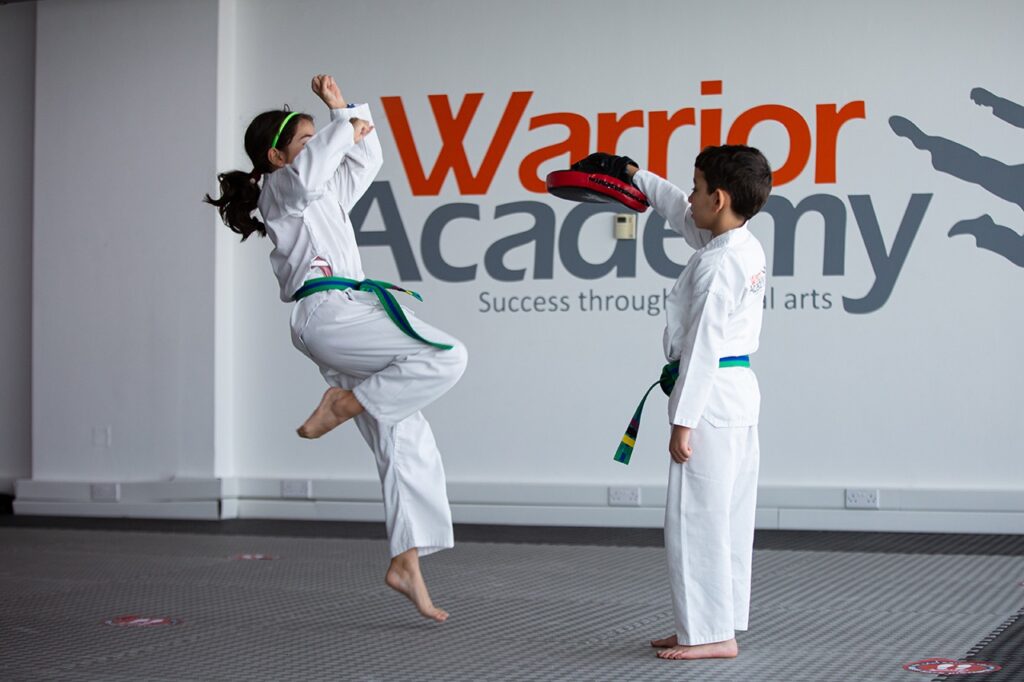
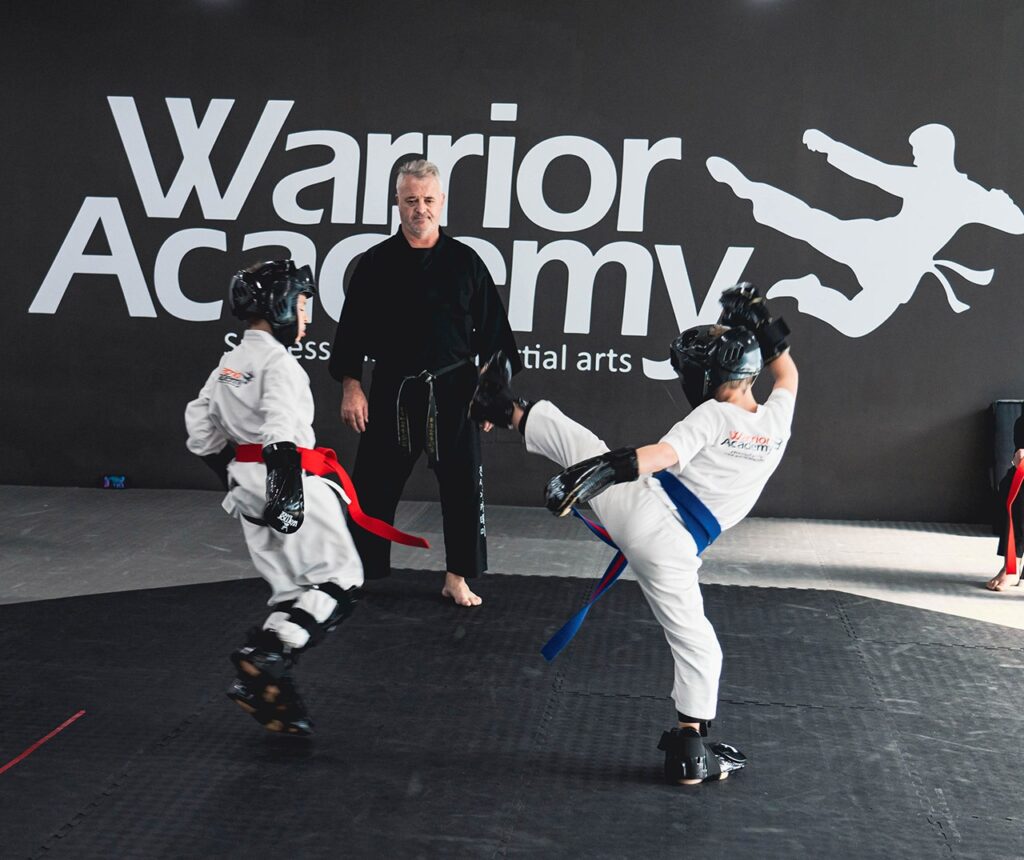
The Positive Impact of Character Development
Having a strong character is an important aspect of a child’s life. It is the foundation for developing skills and values that will shape their future. A child with a strong character is more likely to make good decisions, maintain positive relationships, and become a productive member of society. This is because a strong character gives them the confidence to face challenges and the resilience to overcome setbacks.
Children who develop a strong character are more likely to have a clear sense of purpose and direction in life. They understand their values and have a strong sense of right and wrong. This makes them more resilient and better equipped to deal with the challenges and pressures that they will face in the future.
One of the key benefits of having a strong character is that it helps children to make good decisions. Children with a strong character are more likely to be self-aware and self-disciplined. They are better equipped to resist peer pressure and make decisions that are in line with their values and beliefs. This helps them to avoid negative behaviors such as substance abuse, bullying, and other risky behaviors that can have a negative impact on their future.
In addition, children with a strong character are more likely to maintain positive relationships. They are able to communicate effectively, empathize with others, and work collaboratively towards common goals. This helps them to build strong and meaningful relationships with others, which in turn provides them with a support network that can help them to navigate through the challenges of life.
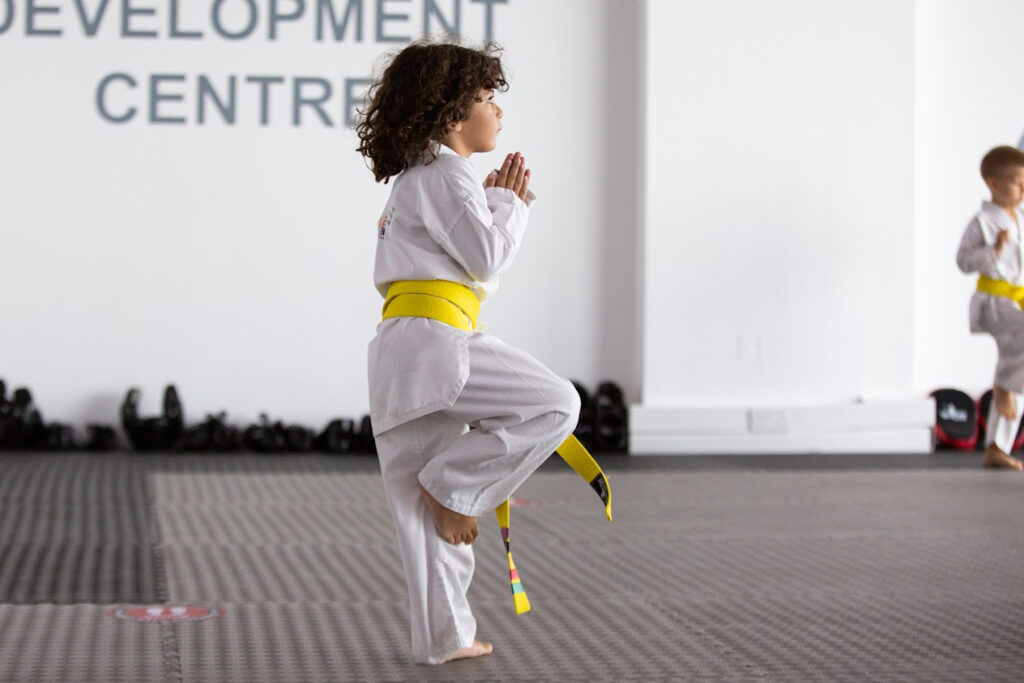
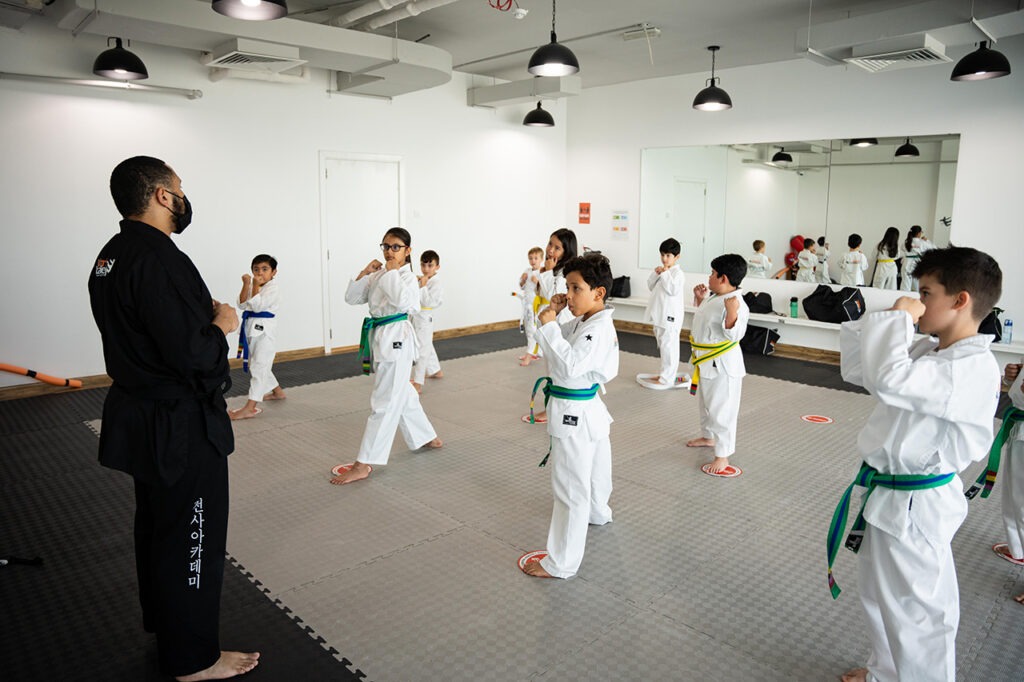
Book An Introduction Session With Us Today
Taekwondo can be an effective tool for character development. By instilling the values of respect, self-control, discipline, goal setting, courage, and compassion, taekwondo can help individuals become more well-rounded and compassionate individuals. The skills learned through taekwondo can be applied in all aspects of life, helping children develop into successful and responsible adults. Whether your child is interested in taekwondo for fitness, self-defense, or character development, the benefits of the discipline go far beyond the training hall.

